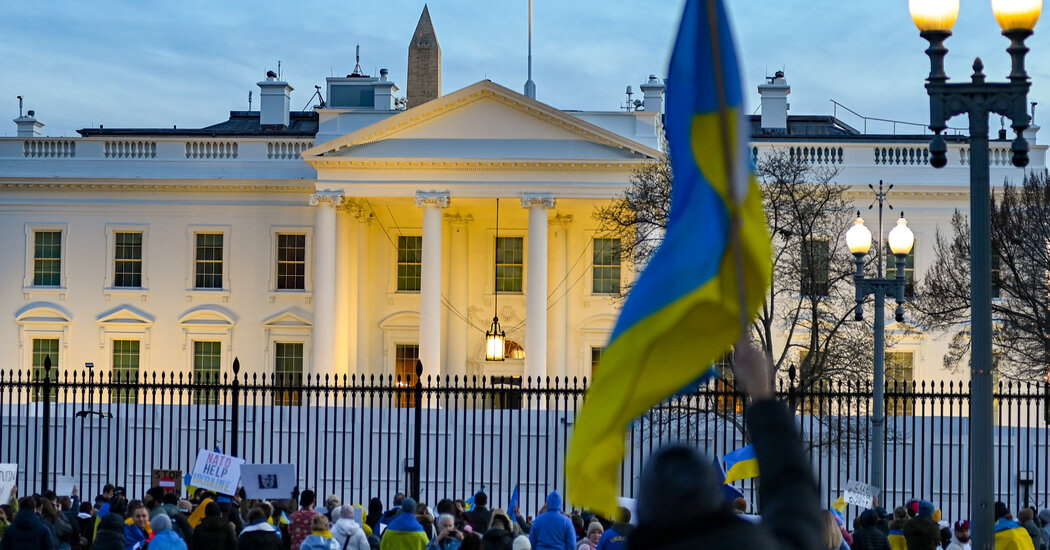“Ukrainian Nationals currently in the United States should not be forced to return to Ukraine while the nation is at war with Russia,” Sen. Rob Portma
“Ukrainian Nationals currently in the United States should not be forced to return to Ukraine while the nation is at war with Russia,” Sen. Rob Portman, Republican of Ohio, said on Twitter. “Granting them Temporary Protected Status is the right thing to do.”
Senator Bob Menendez, Democrat of New Jersey and the chairman of the Senate Foreign Relations Committee, praised the administration for giving this relief to Ukrainians. But he also urged the White House to designate citizens of Cameroon, Ethiopia and Afghanistan as eligible for the same benefit.
“Temporary Protected Status was created by Congress for exactly this purpose — to protect people whose home countries have experienced armed conflict, an environmental disaster or extraordinary conditions that prevent people from safely returning home,” Mr. Menendez said in a statement. The program went into effect in 1990.
The administration also paused deportations on commercial flights to the region, according to an official who spoke on condition of anonymity because they were not authorized to speak publicly. On March 1, three Ukrainians were scheduled for deportation to Kyiv on a commercial flight, the official said. Those three people are now eligible to apply for temporary status.
Russia-Ukraine War: Key Things to Know
A Ukrainian city falls. Russian troops gained control of Kherson, the first city to be overcome during the war. The overtaking of Kherson is significant as it allows the Russians to control more of Ukraine’s southern coastline and to push west toward the city of Odessa.
More than 1,000 Ukrainians were caught crossing the southwest border of the United States from October to January, a significant increase compared with previous years, according to government data.
There are currently more than 400,000 people living in the United States under temporary protected status, including immigrants from Burma, El Salvador, Haiti, Honduras, Nepal, Nicaragua, Somalia, South Sudan, Sudan, Syria, Venezuela and Yemen.
Advocates for limiting immigration have been critical of the program, which they say ultimately lets people who receive the designation stay in the United States permanently.
www.nytimes.com
